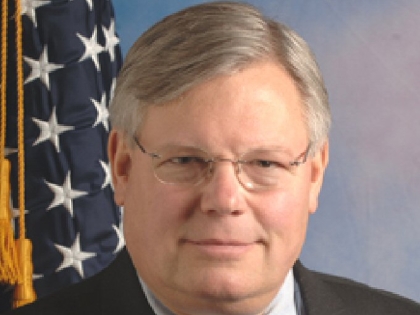
Platt's Gas Daily: Anti-fracking bills face chaotic session in Albany
By Melanie Tatum
March 4, 2010
Lawmaking is often said to resemble sausage-making — not an enterprise for the faint-hearted. Case in point: Albany, New York. Less than two years after then-Governor Eliot Spitzer was forced to resign his office over a highly publicized sex scandal, current
Governor David Paterson is fighting calls for his own resignation amid charges of ethics violations. Last month, Senator Hiram Monserrate was expelled from office after a misdemeanor assault conviction, roughly eight months after he and fellow Democrat Pedro Espada Jr. began caucusing with Senate Republicans, staging a temporary coup that left Albany deadlocked for weeks.
In the midst of that turmoil, Senator Thomas Duane and Assemblyman James Brennan are continuing to pursue their companion bills to ban gas drilling in the New York City watershed — though when that legislation will see some movement is anyone’s guess.
The bills, known as S6654A and A1322B, would establish a moratorium on the issuance of permits for oil or gas wells for two years, and would ban drilling within five miles of the New York City water supply infrastructure.
Lorrie Smith, legislative director for Brennan, told Platts this week that the Brooklyn Democrat first became involved in the issue when constituents expressed concerns about the use of hydraulic fracturing in the New York portions of the Marcellus Shale. “I don’t think it took too long for [Brennan] to be concerned about the potential risks of this kind of drilling,” she said.
Duane, a Manhattan Democrat, told Platts that his concerns about the state’s drinking water date back at least as far as his time serving on the New York City Council in the 1990s. At the time, fears about cryptosporidium parasites in the city water supply were of particular concern, due to the parasite’s possible impacts on people living with HIV. The city council “had to work hard to keep the watershed protected,” he said.
Duane, who also chairs the Senate Health Committee, maintained that the potential risks associated with hydraulic fracturing, or fracking, far outweigh any financial benefit.
“At some point in the future, if a safer method of extracting gas might be found, I would be willing to explore that at that time,” Duane said. “The technology as it exists now is not safe.”
Smith noted that the state Department of Conservation is conducting a fracking study, but she said the results might prove disappointing to Brennan. “At this point, they have said very specifically that they will not prohibit drilling in the watershed area,” she noted. But “if it’s a dangerous thing to be doing, then it shouldn’t be done.”
Smith referred to the recent New York City Department of Environmental Protection study that said fracturing poses too great a risk to the watershed (GD 12/24). Nevertheless, with an expected $8.2 billion state budget deficit through 2011 that needs to be addressed, many drilling opponents worry that “that the state is just not looking at this with sufficient concern,” Smith said.
“Our bill does not completely prohibit drilling,” Smith stressed. If energy companies are correct that they can use fracking safely, then they should be able to do so in a way that protects the state’s land and water resources. “That’s what we want in the final analysis.”
In any event, Smith said she does not expect any significant action on the legislation until after the state budget is passed sometime around April 1. “There’s so much else going on here.”